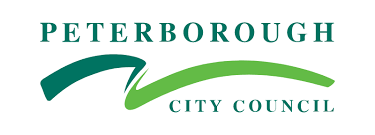Deescalation Training for Retail Staff
Confidence in Conflict and Safety for Staff
Hi, I'm Gerard - thanks for visiting our website today. Here you will find information about how to bring deescalation training to your retail team and keep everyone safer in your workplace. I look forward to working with you!

Help is available - your retail team can become confident in the face of conflict!
Working in retail can be a challenging job, with high-traffic high-street retail outlets often experiencing incidents of abuse, anti-social behaviour, and intoxicated customers. These situations can escalate quickly and put retail staff at risk of harm. For this reason, it is essential that retail staff receive deescalation training to help them manage difficult situations effectively.
What is deescalation training?
Deescalation training is a type of training that teaches individuals how to recognize the early signs of conflict and how to take action to prevent it from escalating further. The training focuses on techniques for effective communication, active listening, and conflict resolution. It also covers how to manage emotions during conflicts and how to stay calm and focused in difficult situations.
Deescalation training is crucial for individuals who frequently encounter conflicts in their personal and professional lives. The training provides individuals with the necessary skills to recognize when a situation is escalating and how to take action to prevent it. These skills can help individuals manage conflicts without resorting to verbal or physical aggression, leading to more positive outcomes and improved relationships. Additionally, deescalation training can improve workplace productivity and create a safer and more positive environment for everyone involved.
Elements of Deescalation Training
Deescalation training for retail staff typically involves a combination of classroom learning and hands-on practice. The training may cover topics such as:
- Recognizing the early signs of conflict
- Effective communication techniques
- Active listening skills
- Conflict resolution strategies
- Managing emotions during conflicts
- Staying calm and focused in difficult situations
- Techniques for managing intoxicated customers
- Legal rights and responsibilities of staff
- The training should always include role-playing exercises to help staff practice their skills in a safe and controlled environment.
We know that training is time consuming and not always effective, so we do it differently!
We use evidence-based and research-informed deescalation training methods which are based on YOUR scenarios and the challenges YOUR team are experiencing. This makes it 'sticky' and improves the transfer of learning to your offices, stores and encounters with customers.
Deescalation training developed for 25 years and used by thousands of professionals!
Deescalation skills are important for retail staff when dealing with abusive, anti-social, or intoxicated customers. These situations can escalate quickly and put staff at risk of harm. With deescalation skills, staff can effectively manage difficult situations, prevent escalation, and resolve conflicts peacefully.
For example, a customer who is intoxicated may become aggressive towards a staff member who refuses to serve them. Without deescalation skills, the situation can quickly become violent. However, with deescalation skills, the staff member can effectively manage the situation, prevent escalation, and ensure the safety of everyone involved.
Employers have a legal duty to provide a safe and healthy workplace for their employees. This includes providing deescalation training for retail staff who may face incidents of abuse, anti-social behaviour, and intoxicated customers in their work. Employers must conduct a risk assessment to identify potential hazards and take steps to mitigate those risks, including providing appropriate training for staff.
Risk assessment is an essential part of ensuring the safety of retail staff. Employers must identify potential hazards and take steps to mitigate those risks, including providing appropriate training for staff. Employers must also prioritize staff wellbeing by providing support and resources to manage the stress and emotional impact of dealing with difficult situations.
Deescalation training is essential for retail staff who may face incidents of abuse, anti-social behaviour, and intoxicated customers in their work. The training provides staff with the necessary skills to recognize and manage conflict, communicate effectively, and resolve conflicts peacefully. Employers have a legal duty to provide a safe and healthy workplace for their employees, including providing appropriate training for staff. By investing in deescalation training and prioritizing staff wellbeing, employers can create a safer and more positive work environment for everyone involved.
Different Types of Deescalation
There are moments on an encounter timeline when the skills od de-escalation may become important for staff:
Pro-actively, by being sensitive to the triggers for conflict which we carry ourselves, and which others may be sensitive to.
Counter-Actively, by applying specific approaches to situations which are already heated, to find a path towards resolution.
Retro-Actively, when the person is already deep in crisis, to recover the person and create safety from chaos.
Deescalating Conflict is Essential Professional Development
Listening and Empathising are examples of great Deescalation Strategies...
The Benefits of Deescalation Training for Retail Staff
Improved Safety
Deescalation training helps retail staff recognize the early signs of conflict and manage aggressive behaviour, reducing the risk of physical harm to themselves and others. The training equips them with skills to identify when a situation is becoming tense and how to take action to prevent it from escalating.
Effective Communication
Deescalation training teaches retail staff effective communication techniques, enabling them to communicate with customers who may be uncooperative or hostile. The training provides them with the necessary skills to convey their message clearly and calmly, reducing the chances of misunderstandings or escalation.
Conflict Resolution
Deescalation training equips retail staff with a range of conflict resolution strategies. This enables them to resolve conflicts peacefully, helping to build trust and respect with customers. Additionally, they can use these skills to help customers find common ground and come to a resolution.
Empathy
Deescalation training teaches retail staff how to listen actively and empathetically, helping them understand the customer's perspective and feelings. This can help them build rapport and diffuse the situation before it escalates. Empathy is a crucial skill for retail staff when dealing with difficult customers, as it helps them relate to the customers and understand their motivations.
Increased Customer Satisfaction
Deescalation training can lead to increased customer satisfaction. By effectively managing conflicts and communicating clearly with customers, retail staff can create a more positive experience for customers. Customers are more likely to return to a store where they feel listened to, respected, and understood.
Improved Staff Morale
Deescalation training can also improve staff morale. By providing staff with the necessary skills to manage conflicts effectively and professionally, employers can create a safer and more positive work environment. Staff who feel supported and valued are more likely to be satisfied with their job and perform better.
Legal Protection
Providing deescalation training can also provide legal protection for retailers. By providing staff with the necessary knowledge and skills to manage difficult situations in accordance with relevant policies and procedures, retailers can reduce the risk of legal liability.
In conclusion, deescalation training is a vital tool for retail staff who face incidents of abuse, anti-social behaviour, and intoxicated customers in their work. The training provides staff with the necessary skills to manage conflicts effectively, communicate effectively, and resolve conflicts peacefully. The benefits of deescalation training include improved safety, effective communication, conflict resolution, empathy, increased customer satisfaction, improved staff morale, and legal protection. Employers who provide deescalation training can create a safer and more positive work environment for everyone involved.
Your team can access our training in Different Formats
Companies can access deescalation training in a variety of formats, including in-person, online, or blended formats.
In-person training can be conducted at the company's location or at an off-site training facility. This format allows for personalized attention and hands-on practice, creating a more engaging and interactive learning experience.
Online (and Remote) training is a convenient and cost-effective option that allows employees to complete the training at their own pace and on their own schedule.
Blended formats combine in-person and online training, offering the best of both worlds. This format allows employees to complete the online portion of the training before attending the in-person session, maximizing the effectiveness of the training.
Companies can choose the format that best suits their needs and budget, ensuring that all employees receive the necessary training to manage conflicts effectively.
Dynamis Deescalation Training
Now it's time to present your offer as the perfect solution to everything you've been talking about so far in your story.
While we were holding back before, it's now time to be very specific. Talk about your product, what it is, what your customer gets when they purchase. At this point, after all the buildup, your readers really want to know what you have to offer, so don't hold back.
- 1How not to escalate everyday encounters: wouldn't it be great if your team were more aware of pushing people's hot-buttons?
- 2How to deal with situations that are already "on-fire" wouldn't it be great if you had more people on your team who you could trust to put people-fires out?
- 3Recognise and support people in crisis or people who are potentially violent! wouldn't you sleep better knowing that your team can recognise different conflict types and take appropriate action to resolve them?

What People Are Saying About our Deescalation Training

“Delivered in an interesting and empathetic way”
"Feedback overall has been extremely positive. Our staff members are better able to communicate with customers who may be uncooperative or hostile. This has reduced the chances of misunderstandings or escalation, leading to a more positive experience for everyone involved."
George Evans
- Head of Retail

“increased customer satisfaction and loyalty"
“Our staff members are now equipped with a range of conflict resolution strategies, enabling them to resolve conflicts peacefully. This has helped us to build trust and respect with our customers, leading to increased customer satisfaction and loyalty."
Tracey Web
- Learning and Development Manager

“a significant difference"
“I cannot recommend this deescalation training highly enough. The benefits of this type of training are numerous, and it has made a significant difference in our ability to manage difficult situations effectively."
Tessa T.
- Senior Programme Partner
Community Fridges
Talk to our training advisor now...
Our Client Manager is an experienced training professional who can discuss the options for training your team, including recommendations for formats and content which will meet your specific needs.

Other deescalation training feedback...

“will be able to put it in to practice"
“Much, much better than any previous course of this nature I have attended. Found it very useful, learned lots from the course and will be able to put it in to practice if ever needed "
John Woodlands
- Pollution Control Officer, Peterborough City Council

“in-depth and relevant ..."
“We were taught on how to use specific words and mannerisms to help de-escalate situations and how to keep our distance at all times. Also, to work on our positioning, especially when giving out tickets not to turn our backs etc... I think it was good, we played out scenarios and were given feedback on how we approached the scenario, our voice, tone, stance and gestures etc"
Customer Services Representative
- Kirklees Council
Gerard O'Dea
Deescalation Trainer
Deescalation training with Dynamis
Dynamis was established in 2006 with one owner-trainer and a focus on personal safety training. Since then our training team has grown and we now deliver training in all aspects of conflict management, personal safety and protective physical interventions across Health, Education, Retail, Leisure, Facilities and for Community-Based Teams involved in Social Work, all over the world.
We bring you confidence in conflict.
Why would you NOT invest in Deescalation Training?
When it comes to investing in training, objections are common. People may be hesitant to spend money on training, unsure of the value it will bring or if it will be worth the investment. However, deescalation training can be a valuable asset for personal and professional growth, and it's essential to overcome objections when buying training. Let's take a look at some of the most common objections people use when buying deescalation training.
"We don't have time for deescalation training!"
Time is one of the most common objections when it comes to training. Leaders may feel that their team is too busy with work or personal responsibilities to commit to training. However, it's important to remember that training can be a valuable investment in time. By investing time in deescalation training, teams can improve their skills, become more efficient, and ultimately save time in the long run. Our training formats (online, remote, blended, incremental) can be tailored to fit into or around any time constraints you have.
"It looks too expensive for us"
Cost is another common objection when it comes to training. Leaders may feel that the cost of training is too high, and they can't afford it. However, it's important to remember that training is an investment in personal and professional growth, and it can pay off in the long run - especially when we consider mental health and wellbeing of your team members, the cost of litigation when things go badly wrong, and even the risk of injury if someone resorts to violence in an encounter with your staff.
"We already know what we need to know."
Some leaders may feel that their team already have the necessary skills and knowledge and don't need training. However, it's important to remember that training can provide new perspectives, best practices, and the latest approaches. We meet a lot of teams who have over-estimated their skill levels when it comes to conflict management!
"We are just not sure if it will be valuable."
Some leaders may be unsure of the value of deescalation training and whether it will be worth the investment. However, it's important to remember that training can provide valuable insights, knowledge, and skills that can improve job performance and personal growth, not to mention fulfilling Health and Safety requirements for keeping staff and others safe in the workplace. Where risks are foreseeable, the cost of negligence ("failure to train") can be very high compared to the investment required in training.
Advantages vs Disadvantages
Here's a section that you can use for many purposes. For example, you can use it to showcase how your solution is better than other solutions out there. Or, compare the problems your reader is facing right now with the great solutions they'll enjoy once they purchase.
With Deescalation Training
Without Deescalation Training
Deescalation Training content

100% Satisfaction Guarantee
You are fully protected by our 100% Satisfaction-Guarantee. If your team are not satisfied that we met or exceeded their expectations of the training course, just let us know and we'll send you a prompt refund.

Frequently Asked Questions
Where is training carried out?
What is the investment in training?
How quickly can I book training to happen?
How many people can attend a training course?
Is Dynamis training Accredited?
Is the training suitable for my staff and my context?
We have delivered scenario-driven, safety-focussed deescalation training for:
- NHS teams in clinical settings, acute trusts, community care and GP surgeries
- Private Healthcare teams in Hospital Administration, Portering, Cleaning and Security
- Retail teams working in high-traffic high-street locations which attract anti-social behaviour
- Leisure/Restaurant teams who work in hospitality, dealing with Dine-n-Dash, for example
- Facilities / Construction teams who have varied, complex interactions with stakeholders
- Enforcement teams who have to deliver 'bad news' to people in the community
- Asylum Seeker support and welfare teams who lean heavily on listening and empathy
- Probation support teams who use redirection and persuasion to keep people on track
- Finance teams who encourage compliance with vehicle lease/loan owners
- Electrical Engineering technicians who maintain high levels of customer satisfaction
- School teams who want to foster a great social contract with their pupils' parents
- Colleges who want to foster compliance with the rules, in a positive environment
- Community Safety Wardens who had to address the issues of knife crime in their community
Copyright -
